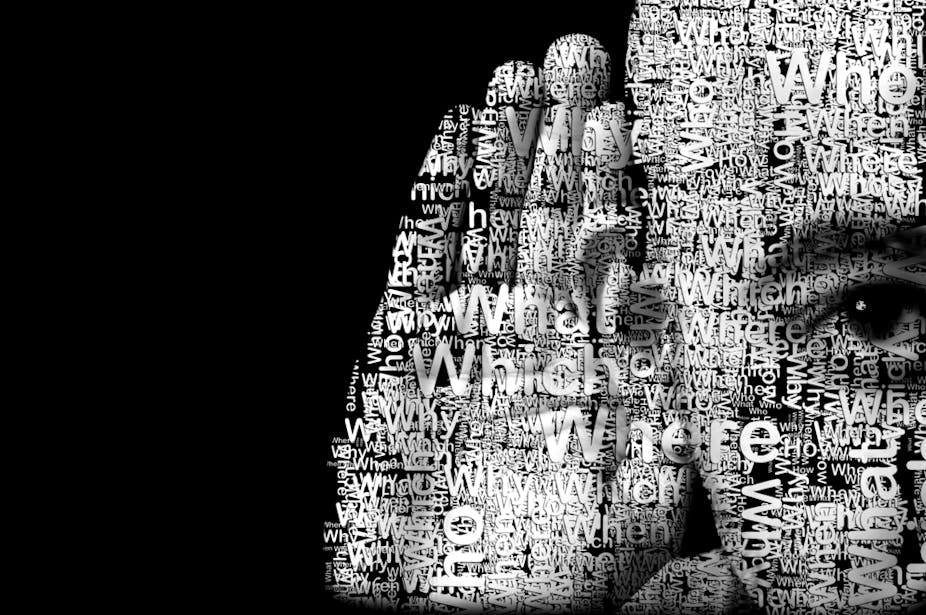When you are in a restaurant or a hotel bar the last thing you expect is for the private conversation you are having to be reported all over the media the next day. But that may well depend upon who you are and what you say.
Eavesdropping on someone else’s conversation is considered rude in polite circles. But if you are a journalist it may well result in the kind of scoop ITV News reporter Angus Walker recently chanced upon in a hotel when he overheard remarks made by the government’s chief Brexit adviser, Olly Robbins.
Walker says Robbins “was with two colleagues in the bar and could be clearly overheard by other guests as he gossiped about Brexit, the cabinet and MPs”.
Why are the apparently private remarks of this particular government adviser newsworthy? Because – it is reported – Robbins said that if MPs rejected Theresa May’s latest Brexit deal then an extension on talks with the EU was the next option. Walker says the remarks are “explosive” because May “has consistently said that we are leaving the EU on March 29th and that she will not engage with discussion about delaying our departure”.
A government spokesperson refused to comment on the alleged remarks, simply stating they were part of a “private conversation”.
Invasion of privacy?
Is the reporting of private conversations ethically acceptable or justified? In considering this it is worth looking at a very similar case involving another overhead conversation – but this time involving a journalist.
Former BBC and Channel 4 news journalist Paul Mason was having what he thought was a private conversation in a restaurant in October 2016 when he was overheard allegedly making disparaging comments about Labour leader Jeremy Corbyn. Mason’s remarks that Corbyn did not appeal to the mainstream working class were recorded by a bystander – a freelance journalist as it turns out – and passed onto The Sun.
Mason complained about the report to IPSO, the press regulator for the print media to which The Sun is signed up, saying his privacy had been breached and that the recording had been taken illicitly.
As well as the recording, several pictures of Mason and his friend in the restaurant during the Labour Party’s Liverpool annual conference were featured in the article.
IPSO’s editors’ code states that it is “unacceptable to photograph individuals without consent in public or private places where there is a reasonable expectation of privacy”. The code also says that the press should not use “clandestine devices and subterfuge” such as hidden cameras or recording devices to obtain material which it then publishes.
Mason argued that he had a reasonable expectation of privacy in the restaurant, as no doubt Robbins would similarly argue he had in the hotel at which he was staying.
In Mason’s case, IPSO rejected his complaint against The Sun. Its complaints committee said Mason’s comments were audible to those around him and that the freelance journalist had simply used his phone to take pictures and record the conversation. In other words, it was not being secretly used as a hidden device.
Public interest
IPSO’s adjudication on the complaint stated: “The complainant, a political commentator, had been discussing politics with a professional contact, and had not spoken about personal or private matters.”
It said that, while a restaurant could ordinarily be considered a private place, the timing and nature of the conversation, the fact that the restaurant was next to the conference where Mason had just spoken, Mason’s close ties to the Labour Party and the fact that he is a journalist himself all meant that “the publication of the conversation did not represent an intrusion into the complainant’s private life”.
The editors’ code of practice is the ethical code most UK print and web journalists are signed up to. For broadcasters, Ofcom acts as the regulator and has its own strict rules on invasions of privacy. In both cases, journalists are allowed to breach the code in the public interest.
Although IPSO did not specifically state that reporting Mason’s comments were in the public interest, by stating that he was not entitled to privacy in such a situation the conclusion is the same. ITV and Walker would no doubt use the public interest defence over the reporting of Robbins’ remarks, given the febrile atmosphere surrounding Brexit talks.

Journalists – or more likely a member of the paparazzi – who invade someone’s privacy using a telephoto lens can usually expect a sharp remand from IPSO, who would view the use of such a device as an “aggravating factor” in a privacy complaint. But even here, if the publication can put forward a robust public interest defence IPSO may well decide there is no reasonable expectation of privacy.
The NUJ’s code of ethics says that journalists should use “honest, straightforward and open means” when newsgathering.
But it also has a rejoinder which says reporters can circumvent these rules when the public interest is “overwhelming”.
Eavesdropping, then, is simply another tool in the journalist’s repertoire which can be used on certain, limited, occasions without fear of breaking any ethical code. And, it’s fair to say, that there is a demonstrable public interest in knowing the government’s plans – or lack of them – for Brexit.

